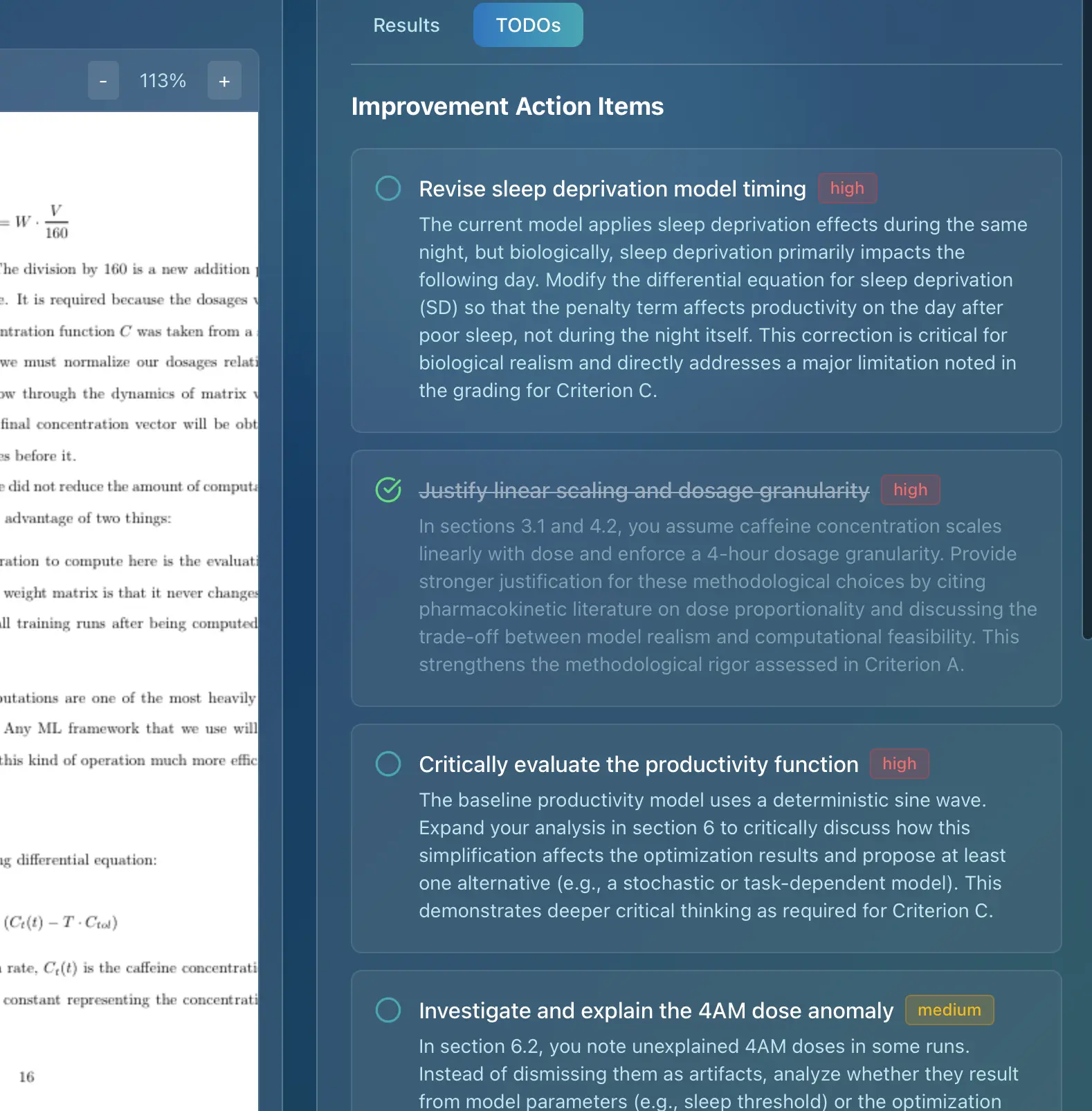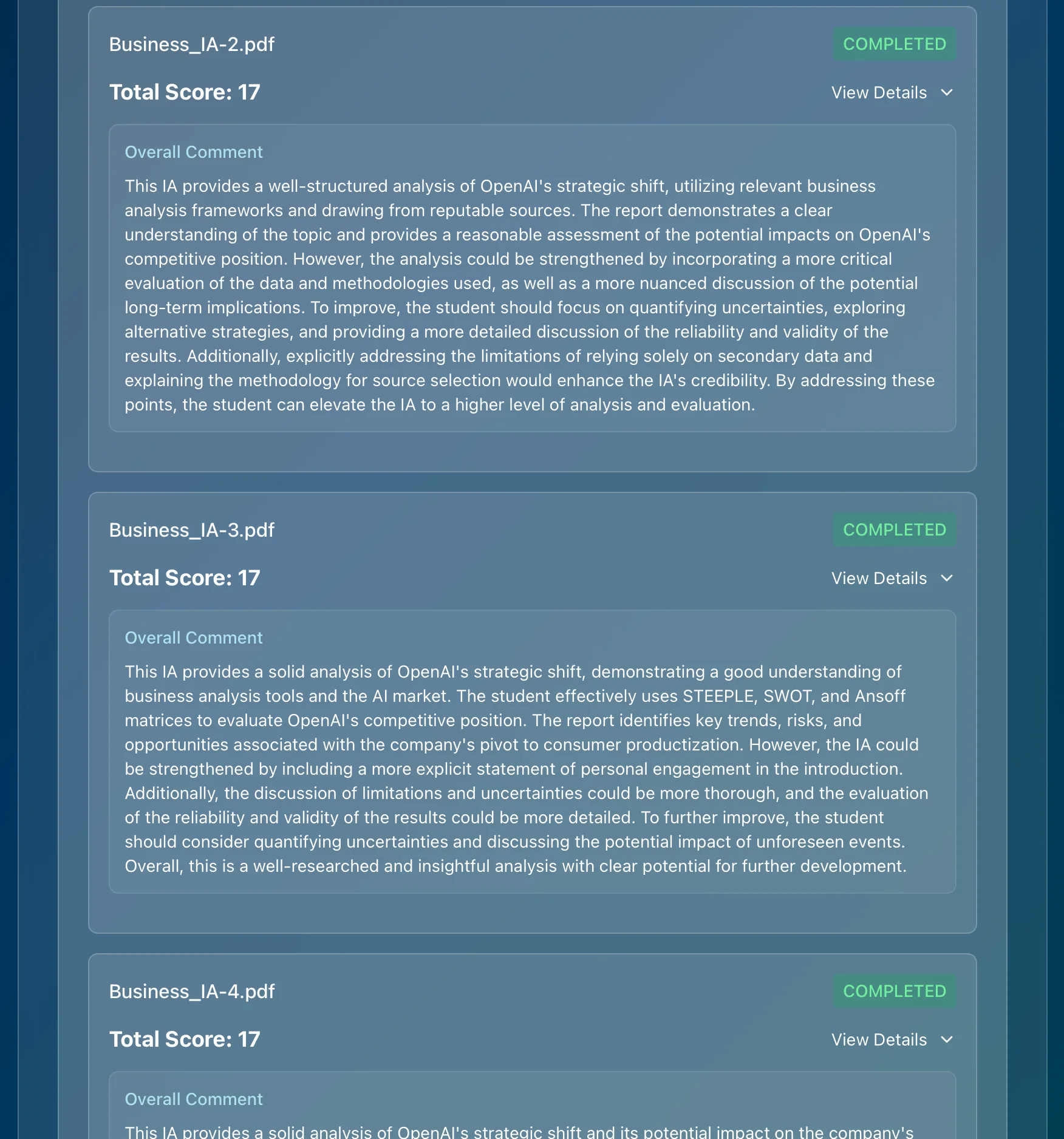Mastering the IB Global Politics Extended Essay Criteria: A Comprehensive Guide
The IB Global Politics Extended Essay is a challenging but rewarding opportunity to delve into a contemporary global issue. Understanding the grading criteria is crucial for success. This guide provides a comprehensive breakdown of the assessment rubric, offering practical tips and examples to help you achieve top marks. We'll explore each criterion in detail, from focus and method to critical analysis and engagement, ensuring you're well-equipped to tackle this significant component of your IB Diploma Programme.
What is the Global Politics Extended Essay?
The Global Politics Extended Essay (EE) is a 4,000-word independent research paper that allows you to explore a contemporary global political issue in depth. It's a significant component of the IB Diploma Programme, contributing to your overall score and demonstrating your research, analytical, and writing skills. The EE provides an opportunity to apply theoretical frameworks and concepts learned in the Global Politics course to a real-world issue, fostering critical thinking and independent learning.
Struggling with IB Assessments?
Get instant, detailed feedback on your work with AI that understands IB criteria.

Understanding the Grading Criteria
The Global Politics Extended Essay is assessed against five criteria, each focusing on different aspects of the essay. These criteria are: Focus and Method, Knowledge and Understanding, Critical Analysis, Presentation, and Engagement. Each criterion is further divided into mark bands, providing a clear framework for assessing the quality of your work. Understanding these criteria is essential for planning, researching, and writing a successful Extended Essay.
Detailed Breakdown of Global Politics Extended Essay Criteria
Criterion A: Focus and Method (0-6 marks)
What it assesses: This criterion evaluates the clarity of your topic, the relevance and focus of your research question, the appropriateness of your methodology, and the justification for your choices in the context of a contemporary global political issue. It also assesses the effectiveness of your planning.
Mark bands:
- 0 Marks: The topic is not clearly identified, or the research question is absent or irrelevant to global politics. The methodology is not described or justified.
- 1-2 Marks: A topic is identified, but its relevance to global politics is weak. The research question is broad or lacks focus. The methodology is vaguely described, with limited justification.
- 3-4 Marks: A contemporary global political issue is identified, and its significance is explained. The research question is articulated but may lack specificity. The methodology is described with some justification, and relevant sources are mentioned.
- 5-6 Marks: A contemporary global political issue is clearly identified, and its significance and relevance for investigation are well-explained. The research question is focused and aligns with the theoretical frameworks and terminology of global politics. Methodological choices are justified, and relevant sources (e.g., case studies, comparative analysis) are selected to support the development of arguments. Effective planning is evidenced.
Tips for success:
- Choose a topic that genuinely interests you and is relevant to contemporary global politics. Avoid overly broad topics.
- Formulate a clear and focused research question that can be answered within the scope of the Extended Essay.
- Justify your methodological choices, explaining why they are appropriate for addressing your research question.
- Create a detailed plan outlining your research process, including timelines and milestones.
- Common mistakes to avoid: Selecting a topic that is too broad, failing to justify methodological choices, and neglecting to plan effectively.
Criterion B: Knowledge and Understanding (0-6 marks)
What it assesses: This criterion assesses your understanding of the global political context, your ability to apply relevant concepts and terminology, and your awareness of social and cultural influences on the issue you are investigating.
Mark bands:
- 0 Marks: There is no evidence of knowledge or understanding of global politics. Terminology is absent or misused.
- 1-2 Marks: Limited connections are made between the research question and the global political context. Terminology is used sparingly or inaccurately. Awareness of social and cultural influences is minimal.
- 3-4 Marks: Connections are established between the research question and the global political context, including institutions, actors, or theories. Terminology and concepts are used with some accuracy. There is some awareness of social and cultural influences on political understanding.
- 5-6 Marks: Clear connections are established between the research question and the global political context, including institutions, actors, and theories. Terminology and concepts are used accurately and clarified where needed. There is a strong awareness of social and cultural influences on political understanding. Knowledge gained from selected approaches and sources is analyzed to form arguments and conclusions.
Tips for success:
- Demonstrate a strong understanding of relevant global political concepts and theories.
- Use terminology accurately and appropriately.
- Analyze the social and cultural influences that shape the issue you are investigating.
- Connect your research question to the broader global political context.
- Common mistakes to avoid: Using terminology inaccurately, failing to connect the research question to the global political context, and neglecting to analyze social and cultural influences.
Criterion C: Critical Analysis (0-12 marks)
What it assesses: This criterion assesses your ability to critically engage with the chosen issue, construct a reasoned argument, and support it with relevant evidence. This is the most heavily weighted criterion, so it requires significant attention.
Mark bands:
- 0 Marks: There is no evidence of critical analysis. The essay is primarily descriptive or narrative.
- 1-4 Marks: Limited engagement with the issue. Arguments are weak or unsupported. Analysis is superficial, and evidence is lacking or irrelevant.
- 5-8 Marks: Some critical engagement with a contemporary political issue using relevant approaches, techniques, and sources. An argument is presented but may lack clarity or consistency. Analysis is supported by some relevant material chosen from research. The essay may be overly descriptive in parts.
- 9-12 Marks: Critical engagement with a contemporary political issue using relevant approaches, techniques, and sources. A specific argument or position is constructed, presented, and supported in response to the research question. Analysis is supported with specific, relevant material chosen from research, ensuring alignment with the research question. The essay avoids being wholly narrative or descriptive. A reasoned argument is developed based on research, supported by evidence and culminating in conclusions that align with presented evidence, refrain from introducing new material, and consider questions for further study.
Tips for success:
- Develop a clear and focused argument in response to your research question.
- Support your argument with relevant and credible evidence from your research.
- Critically analyze the evidence, considering different perspectives and potential biases.
- Avoid simply describing or narrating events; focus on analysis and interpretation.
- Ensure your conclusion directly answers your research question and is supported by the evidence presented.
- Common mistakes to avoid: Presenting a weak or unsupported argument, failing to critically analyze the evidence, and relying too heavily on description or narration.
Criterion D: Presentation (0-4 marks)
What it assesses: This criterion assesses the clarity, organization, and academic conventions of the essay.
Mark bands:
- 0 Marks: The essay lacks structure and organization. Academic conventions are not followed.
- 1 Mark: The essay has some structure, but it is not consistently applied. Academic conventions are partially followed.
- 2-3 Marks: The essay utilizes a structured layout with clear headings to aid the organization. The title page, table of contents, page numbers, etc., contribute to the presentation. Referencing is generally accurate.
- 4 Marks: The essay utilizes a structured layout with clear headings to aid the organization without distracting from the argument. The title page, table of contents, page numbers, etc., contribute to the quality of the presentation. The inclusion of charts, tables, and images within the essay body directly supports or clarifies the argument. All essential content relevant to analysis, discussion, and evaluation is in the main essay body. Appendices are used wisely. Referencing is accurate and consistent.
Tips for success:
- Structure your essay logically with clear headings and subheadings.
- Follow academic conventions for formatting, referencing, and citation.
- Use a consistent citation style (e.g., MLA, Chicago, APA).
- Include a title page, table of contents, and page numbers.
- Use appendices wisely for supplementary material.
- Common mistakes to avoid: Failing to follow academic conventions, using inconsistent formatting, and neglecting to proofread carefully.
Criterion E: Engagement (0-6 marks)
What it assesses: This criterion assesses your reflection on the research process, including your decision-making, planning, and the skills you developed. This is demonstrated through the reflections on planning and progress form.
Mark bands:
- 0 Marks: There is no evidence of reflection on the research process.
- 1-2 Marks: Limited reflection on the research process, primarily descriptive.
- 3-4 Marks: Reflections encompass strategies chosen, learning skills developed, conceptual understandings, setbacks faced, emerging questions, and potential improvements for future research.
- 5-6 Marks: Students reflect on decision-making, planning, and the approach used in completing the essay, demonstrating rationale and skills developed. Effective reflection showcases critical and reflective thinking, providing insight into student creativity, originality, and learning throughout the research process.
Tips for success:
- Reflect on your research process, including your initial ideas, challenges, and successes.
- Discuss the decisions you made and the reasons behind them.
- Analyze the skills you developed during the research process.
- Be honest and self-critical in your reflections.
- Common mistakes to avoid: Providing superficial reflections, failing to analyze your decision-making process, and neglecting to discuss the skills you developed.
How to Excel in Your Global Politics Extended Essay
- Start early: Begin planning and researching your essay well in advance of the deadline.
- Choose a topic you are passionate about: Your enthusiasm will make the research process more enjoyable and engaging.
- Develop a strong research question: A well-defined research question will guide your research and analysis.
- Conduct thorough research: Gather a wide range of sources from reputable sources.
- Develop a clear and logical argument: Present your argument in a structured and coherent manner.
- Support your argument with evidence: Use evidence from your research to support your claims.
- Critically analyze the evidence: Consider different perspectives and potential biases.
- Proofread carefully: Ensure your essay is free of grammatical errors and typos.
- Seek feedback from your supervisor: Your supervisor can provide valuable guidance and support.
Pro Tip: Get AI-Powered Grading
Stop second-guessing your grades. Get instant feedback aligned with official IB rubrics.

Common Mistakes to Avoid
- Choosing a topic that is too broad or too narrow.
- Failing to develop a clear research question.
- Relying on unreliable sources.
- Plagiarizing material from other sources.
- Failing to proofread carefully.
- Ignoring feedback from your supervisor.
- Not managing your time effectively.
- Writing a descriptive essay instead of an analytical one.
- Failing to connect your research to global political concepts and theories.
- Not reflecting on your research process.
The Role of AI in Modern Assessment
Modern technology is revolutionizing how we approach academic assessment. AI-powered grading assistants can now help teachers maintain consistency and accuracy in their evaluations while saving valuable time. These tools use the same official IB criteria to provide detailed feedback and scoring, ensuring that assessments meet the high standards expected in IB programs.
For educators looking to streamline their grading process while maintaining the quality and consistency that IB assessments demand, AI grading assistance offers a powerful solution that complements traditional teaching methods.
Conclusion
Mastering the IB Global Politics Extended Essay requires a thorough understanding of the grading criteria, careful planning, and diligent research. By following the tips and advice outlined in this guide, you can increase your chances of achieving top marks. Remember to choose a topic you are passionate about, develop a strong research question, and critically analyze the evidence you gather. Good luck!
Looking for more support with IB assessment grading? Discover how AI-powered grading assistants can help maintain consistency and accuracy in your evaluations while saving valuable time. Learn more about modern grading solutions designed specifically for IB educators.